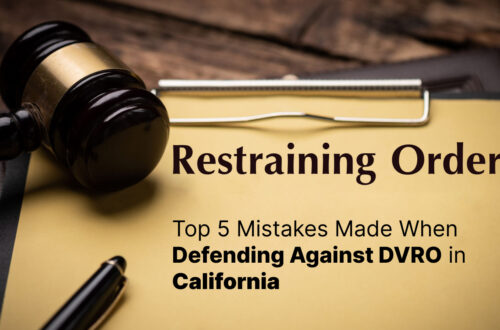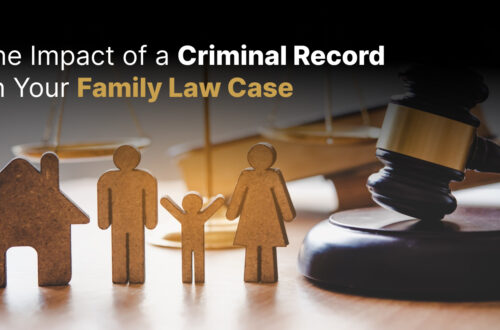The state of California holds driving under the influence (DUI) offenses to a strict legal standard, enforcing severe penalties that may include arrest, license suspension, and criminal prosecution. The California DUI law underscores the state government’s ongoing commitment to road safety.
But what do these laws actually mean for drivers? How can a DUI affect your record and your license? And what should you do if you or someone you know is facing a DUI charge in California?
To help you understand the California DUI law and penalties, we have created this guide with the expert insights from criminal defense attorney and former prosecutor Parag Agrawal, who brings firsthand knowledge of how DUI cases are handled on both sides of the courtroom.
What is a DUI Under California Law?
DUI (Driving Under the Influence) refers to operating a motor vehicle under the influence of alcohol, drugs, or both. It is illegal to drive if your physical or mental abilities are impaired to the extent that you can no longer drive as a reasonably cautious, sober person would. Additionally, driving with a Blood Alcohol Concentration (BAC) level of 0.08% or more for an adult is illegal and considered a criminal offense in California.
Fines, suspension of license, mandatory education programs, or even incarceration can be imposed as penalties for DUI. These legislations are rigidly enforced to ensure public safety and reduce impaired driving incidents.
How is a DUI Charge Determined in California?
In California, DUI charges are determined when an individual is apprehended for driving under the influence of alcohol, drugs, or both. Police officers can stop a driver if they notice unsafe driving, such as swerving or speeding.
The officer may ask the driver to undergo field sobriety tests or use a breath test to determine their BAC level. A BAC of 0.08% or higher is illegal for the majority of adult drivers. For commercial drivers, it is 0.04%, and for those under 21, the limit is 0.05%.
A urine or blood test may also be required to test for drugs. If the test shows the presence of a controlled substance and there is impaired driving, the driver can be charged with DUI. The final charge depends on the test results, driving behavior, and the officer’s report.
What Should You Do Immediately After a DUI Arrest in California?
If you are arrested for DUI charges, it is important to act quickly and carefully. First, you have to understand that panicking wouldn’t help, so try to stay calm and be cooperative with law enforcement. You should not argue or resist, as it could make things worse. After your arrest, you may be asked to take a breath or blood test.
Next, you should contact a DUI defense attorney as soon as possible. A strong legal defense can help protect your rights and guide you through the legal process. You have only 10 days to request a hearing with the DMV to try and stop your license from being suspended. Avoid talking about your case with anyone other than your lawyer. What you say can be used against you in court.
What Happens After a DUI Arrest in California?
After a DUI arrest in California, the process moves fast. You have only 10 days to ask for a DMV hearing to challenge your license suspension. If you don’t, your license will be suspended by the DMV.
Law enforcement submits your arrest report, test results, and other evidence to the prosecutors, who determine whether to file formal DUI charges.
Your first court appearance (arraignment) typically occurs within several weeks or a few months. There, you will enter a plea. After that, the case may proceed to pre-trial motions, possible plea deals, or a trial.
What Makes a DUI a Felony in California?
Most DUIs in California are considered misdemeanors, but some can become felonies based on certain conditions. A DUI becomes a felony if:
- It is your fourth DUI within 10 years
- You caused a serious injury or death while driving under the influence
- You have a prior felony DUI on your record
In cases where a DUI results in a fatality, the driver may also face more severe charges, such as vehicular manslaughter or even second-degree murder, depending on the circumstances. These are extremely serious offenses with long-term legal consequences.
What are the Long-Term Consequences of a DUI Conviction?
A DUI conviction carries long-term consequences even after the case ends. First, it stays on your driving record for 10 years, which can result in higher car insurance rates. Employers doing background checks may see the DUI, making it harder to get certain jobs, especially those that involve driving.
If you are convicted again within 10 years, the penalties will be much worse. A DUI also shows up on your criminal record, which can affect your housing applications, professional licenses, and even international travel.
Felony DUIs have life-changing consequences, which can result in a permanent criminal record, potential employment difficulties, increased insurance rates, and financial strain.
How Can You Defend Yourself Against a DUI Charge in California?
A DUI charge in California can lead to serious consequences, but there are legal ways to fight it. A strong defense can question the validity of the traffic stop, the accuracy of the breath or blood test, or even how the officer handled the arrest. Sometimes medical conditions or faulty testing equipment can affect the results.
The Law Office of Parag Agrawal brings years of experience handling DUI cases across California. Attorney Parag Agrawal has handled many complex DUI matters and knows how to spot weak evidence, question police procedures, and protect your legal rights. With clear communication, personal attention, and a strong understanding of California DUI laws, Parag helps clients feel informed and supported throughout the process.
Conclusion
DUI charges in California carry strict and lasting consequences. Even a first-time offense can lead to fines, probation, license suspension, DUI education programs, and possible jail time.
If you or anyone you know is arrested for DUI in California, it is important to stay calm and not panic. Taking the right legal steps with the help of an experienced DUI attorney can protect your rights and give you a fair chance at reducing or fighting the charges.
Disclaimer: The information provided in this blog is for general informational purposes only and is not intended as legal advice. It is recommended that you consult with a qualified criminal defense attorney to discuss your specific circumstances and receive personalized legal guidance. Parag Agrawal and Law Office of Parag Agrawal do not accept responsibility for any actions taken based on the information provided in this blog.
FAQs
How To Beat a DUI Charge in California?
Every DUI case is different, but mistakes in testing, the arrest process, or weak evidence can give you a strong chance to fight it.
What Is the New Law for DUI in California?
The 2025 DUI Law updates include stricter rules for rideshare drivers, longer license suspensions, and required breath devices for certain convicted drivers.
How Likely Is Jail Time for a First DUI in California?
First-time DUI offenders usually avoid jail, especially with no accident and no refusal, but judges can still order short-term sentences if they deem appropriate.
Can DUI Charges Be Dropped in California?
Yes, if there are issues with how the stop, test, or arrest was handled, DUI charges can sometimes be reduced or even dismissed.
Is It Worth Fighting a DUI in California?
Definitely. A good defense can protect your license, reduce penalties, and sometimes even clear your record.
Can You Still Drive After a DUI in California?
In many cases, yes. With a restricted license and ignition interlock device, you may still be allowed to drive during your suspension.





